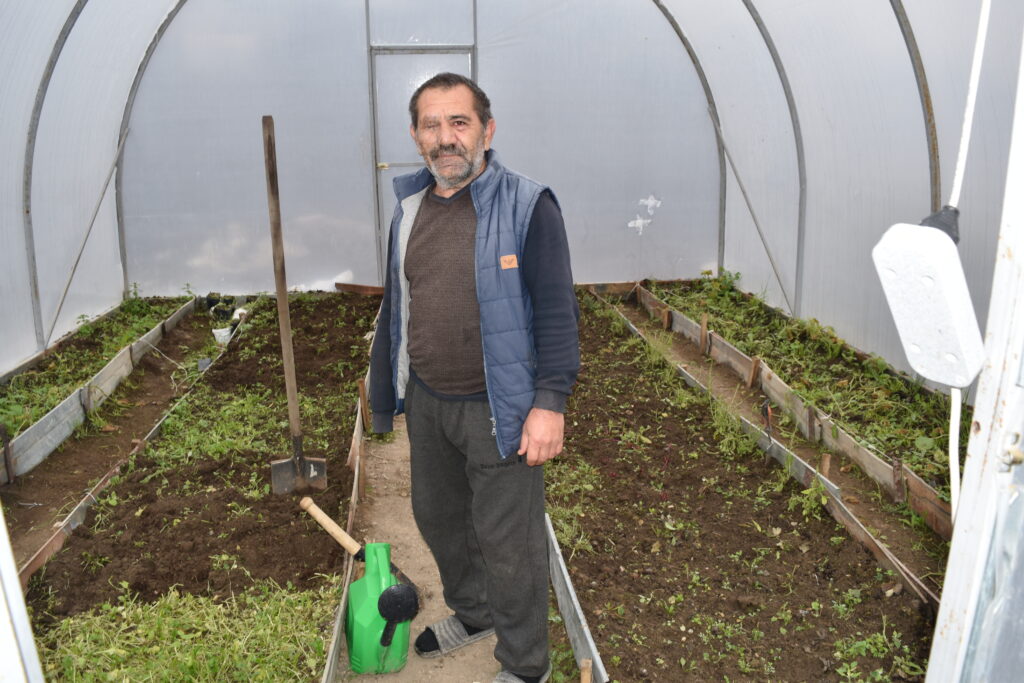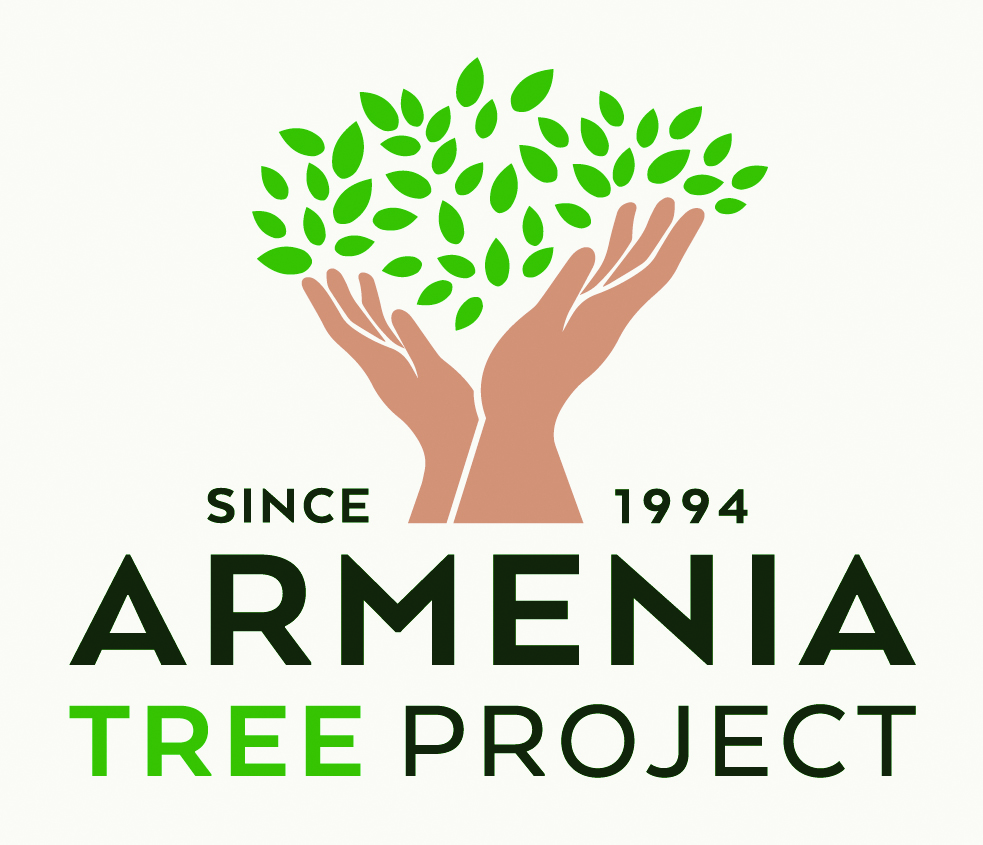Loss. It’s a word that has defined the lives of the 120,000 refugees who were forced to flee Artsakh in September 2023. These families have faced the unimaginable — loss of jobs, land, loved ones. Yet, amidst this overwhelming loss, a beacon of hope shines through in the form of growth, cultivation and the ability to harvest food. Thanks to Armenia Tree Project’s (ATP) Resilient Roots initiative, these families are finding a path forward, reconnecting with their roots and nurturing a future filled with possibilities.
Resilient Roots is one of ATP’s many programs, designed to address not just environmental needs but also to uplift communities facing extraordinary challenges. Founded in 1994 by Boston-based philanthropist Carolyn Mugar, ATP has always been about more than just planting trees. From its early days of replanting trees cut down during the 1992 energy crisis to its expansive reforestation and environmental education efforts, ATP has consistently promoted self-sufficiency and improved the standard of living for the Armenian people.
In recent years, ATP’s mission expanded to include the Resilient Roots project, born from the Backyard Greenhouse Project in Artsakh, which began in 2021. This initiative, launched in partnership with Green Lane, an NGO focused on agricultural training, was a lifeline for families who had lost everything during the 2020 war. By providing greenhouses and training, Resilient Roots empowered families to grow their own food, offering both sustenance and a sense of purpose during the harsh blockade of the Berdzor (Lachin) Corridor.
Stories of resilience and renewal
The stories of the families who have benefited from Resilient Roots are as inspiring as they are poignant. Take, for example, the Jabyan family. Forced to relocate during the 2020 war, they found hope in their greenhouse, which provided enough vegetables to sustain them throughout the winter of 2022-2023. Despite the blockade that left many in Artsakh struggling for basic necessities, the Jabyan family was able to rely on their greenhouse for survival — and even shared their produce with neighbors.

Similarly, the Beglaryan family, from Khnabad village in Artsakh, used their greenhouse to grow tomatoes and cucumbers, helping them weather the nine-month blockade. “These greenhouses helped during the blockade for self-sufficiency and even economically helped some folks who sold the food they grew,” says Masis Zargaryan, Artsakh project assistant at ATP. The greenhouses not only provided food but also a critical source of income during an incredibly difficult time.
Now, these families, like so many others from Artsakh, face a new reality in Armenia. Unemployment, underemployment and the high cost of living have created a new set of challenges. Resilient Roots is stepping up once again, this time with a focus on building collapsible greenhouses for families with available yard space — an effort designed to provide stability even if these families must move again.
A call to action: support Resilient Roots
Resilient Roots is about planting hope, cultivating resilience and nurturing a future where these families can thrive once more. As we continue to expand our efforts, we invite you to join us in this vital mission. Your support can help us build more greenhouses, provide more families with the tools they need to rebuild their lives and expand our educational programs to ensure that every seed planted grows into a future filled with promise.
We are currently working with eight of the original 49 families, including the Jabyans and Beglaryans, to provide them with greenhouses in Armenia. Our goal is to expand this initiative, partnering once again with Green Lane to offer an even greater variety of seeds and educational materials. This time, the greenhouses will be more than a source of food — they will be a source of income and a lifeline for families determined to rebuild their lives.
Your donation to Armenia Tree Project can make a real difference. Visit ArmeniaTree.org to donate today. Together, we can restore optimism and stability for Artsakh refugees, one greenhouse at a time.
This article was written by Sarine Meguerditchian, originally from the Boston area, who is a rising junior at Northwestern University studying economics and political science, and Shushanik Hayriyan from Artsakh, who currently attends the College of Idaho where she studies international political economy and business. Meguerditchian and Hayriyan are currently interning for the Armenian Assembly of America, ATP’s parent organization.



Be the first to comment